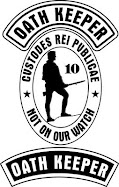Wednesday, August 26, 2009
Tennessee Swine Flu
http://health.state.tn.us/h1n1.htm
These quotes are taken from the TN H1N1 preparedness plan 4/2009
(my comments in blue, quotes in red and italiacs for emphasis)
"WHO Phase 6 (Pandemic):
The lead agency for the public health response to a pandemic is TDH. The
state response will be conducted in collaboration with federal response
agencies; primarily, the Department of Health and Human Services (HHS)
and Department of Homeland Security (DHS)."
Why does DHS need to be involved in State Affairs?
Unless otherwise directed by a CEDS physician, all influenza
specimens should be sent to the State Laboratory in Nashville for
testing. Informed consent is not required.
Laboratory Services: Attn. Virology
630 Hart Lane
Nashville, Tennessee 37216
Telephone: (615) 262-6300
Fax: (615) 262-6393
Based on: 1) the rapid test result (if influenza A positive),
2) the status of oseltamivir prophylaxis, and 3) the clinical
evaluation, the healthcare provider should determine
whether the patient will return to work, be sent home, or be
sent to an infectious disease consultant.
Existing staffing shortages may be amplified by
illness among staff members, fear and concern
about the disease, and isolation and quarantine of
exposed staff or ill/exposed family members.
Use of alternative staffing resources (e.g., retired
healthcare workers, volunteers, contract workers,
students) may be needed but will require training
and support (including malpractice insurance,
occupational health services) during the outbreak
response.
Consider creating a stockpile of surgical masks
(with or without face-shields) for protection of
healthcare workers, visitors and patients
Work with officials to identify temporary morgue sites.
The hospitals have been provided with ASPR grant funds
to develop a mass fatality plan, obtain mortuary services,
and purchase pandemic influenza mortuary supplies, such
as body bags.
Individual suspect cases should be reported by phone to the health
department immediately (24/7)
Exposed unprotected healthcare workers who are
asymptomatic, depending upon the disease, may be
furloughed at the discretion of the Medical Director of the
applicable occupational health service during the
incubation period of the disease.
Exposed, unprotected healthcare workers who are
asymptomatic and who are allowed to work must be
evaluated prior to work each day by the appropriate
occupational health service.
During a pandemic, the Governor may sign an executive order, waiving
rules necessary to allow healthcare facilities to use areas within hospitals
for the treatment of patients, even though that was not the original intent
of these locations (e.g., use of recovery area as an impromptu ICU to
ventilate patients, an ambulatory surgical center as a triage center, patients
to be on beds in corridors, etc.). Such an order could allow temporary
healthcare facilities (e.g., in motels/hotels) to be set up, if this option is
chosen. However, these converted patient care areas will be subject to
meeting basic infrastructure requirements (e.g., infection control:
availability of sinks, soap, towels).
Establish honest, frequent, and regular communication channels to
provide the best available information to staff, in order to control
rumors and foster trust.
Vaccine will stay in the country where it is manufactured; the United
States has only one domestic manufacturing facility owned by Sanofi
Pasteur in Swiftwater, Pennsylvania.
Two doses of vaccine, administered 1 month apart, will be required for
full protection. The first dose primes the immune system and provides
insignificant protection from disease.
Vaccine will be distributed to the public through the network of 13 rural
regional and metropolitan health departments and will be administered by
health department personnel.
Data entry into the Patient Tracking Billing Management Information
System (PTBMIS) and a federally-approved vaccine administration
database will be required to track vaccine administration – dedicated data
entry staff should be identified. The federal government plans to use such
data to justify subsequent vaccine shipments to the state.
Vaccine recipients will be required to provide identification each time they
present for a dose. Recipients requiring vaccination because of their
occupation will require a form of identification from their employer or
will need to be identified by name to the health department by their
employer. For example, hospitals will provide lists of names of personnel,
in priority order, for immunization to the health department.
After the first dose, the recipient should receive an immunization card
from the health department noting the date of their first dose and the due
date for the second dose
Immediately after the Centers for Disease Control and Prevention (CDC)
or World Health Organization (WHO) declare that a novel influenza virus
is spreading easily from person to person (WHO Phase 5) and causing
severe disease, the Department of Health may issue an emergency
regulation classifying antiviral medications indicated for treatment of
influenza infection (e.g., oseltamivir and zanamivir) as controlled
substances. All necessary regulations for controlled substances will be
implemented; Drug Enforcement Agency (DEA) numbers will be required
on all prescriptions and supplies secured and tracked.
Discretionary public gatherings of <100 persons are not
expected to be affected by mandatory suspension. Based upon experience
with modern quarantine during the 2003 outbreak of Severe Acute
Respiratory Syndrome (SARS), cooperation with Department of Health
(TDH) emergency regulations to control disease is expected to be good,
though law enforcement support may be used to ensure compliance where
necessary; civil arrest is possible pursuant to regulations outlined in 1200-
14-4.
A public health measure is sought by a health officer to require actions of
a person who is considered a public health threat; it is signed by a General
Sessions judge following a hearing. Failure to comply with instructions in
a court-ordered public health measure is considered contempt of court.
Tennessee Rules and Regulations 1200-14-4-.05. In the case of an
emergency, a health officer may petition the General Sessions
Court of the county where an affected person lives or is found to
order a law enforcement officer to make a civil arrest and take the
person to a health care facility for examination, isolation and
treatment, or to prevent or restrict access to premises. Health
officers should know what procedure to use if such an action must
be carried out after hours. This may involve talking with county
sheriff’s office or a county judge in advance to make them aware
of this possibility.
Emergency public health measures to confine quarantined persons
or compel testing will be prepared against uncooperative
individuals in accordance with state regulations (1200-14-4) with
the assistance of a public health attorney, and under the authority
of the health officer or the Commissioner, only if the suspect case
patient or contacts are unwilling to cooperate with the instructions
of public health officials.
Contacts should be quarantined at home or in an alternate facility
(e.g., hotel).
Three types of quarantine:
1. Home quarantine where basic needs can be met and where
household contacts can be protected if the person develops
symptoms.
2. Quarantine in designated facility may be arranged by the
regional health department when home quarantine is not possible.
3. Work quarantine for healthcare or other essential personnel who
work while wearing surgical masks and gloves and using proper
infection control precautions, but are quarantined at home or in a
designated facility when not working. If symptoms develop, they
stop working and are isolated.
Regional health departments should pre-select facilities where infectious persons
can be isolated until they are non-infectious (i.e. “patients”) or quarantined
contacts for the prescribed number of days after exposure (i.e. “contacts”).
Staffing, food and communications needs must be arranged for by the health
department. Such arrangements may be necessary for the following groups of
persons:
1. Homeless or indigent persons
2. Travelers without an in-state residence
3. Persons whose homes are inadequate for safe isolation or quarantine
(e.g. a dormitory, a home without a separate bedroom for the patient,
etc.)
The ability to control access to the facility and to each room (i.e.
fencing around the facility with limited access to outside parking,
locking exterior doors, or the ability to post a security guard)
Facilities for quarantine should be identified near airports in the event that
a symptomatic traveler is detected and contacts must be housed during the
investigation
State-funded property or assets may be utilized as needed during
a state of emergency. The Tennessee Emergency Management Agency (TEMA),
acting on the authority of the Governor, will coordinate utilization of these assets
obviating the need for Memoranda of Understanding.
The Governor's Citizen Corps Advisory Committee:
Contact: Director of Volunteer Programs
Tennessee Office of Homeland Security
215 Eighth Ave., North
Nashville, TN 37243
615-741-1085
These quotes are taken from the TN H1N1 preparedness plan 4/2009
(my comments in blue, quotes in red and italiacs for emphasis)
"WHO Phase 6 (Pandemic):
The lead agency for the public health response to a pandemic is TDH. The
state response will be conducted in collaboration with federal response
agencies; primarily, the Department of Health and Human Services (HHS)
and Department of Homeland Security (DHS)."
Why does DHS need to be involved in State Affairs?
Unless otherwise directed by a CEDS physician, all influenza
specimens should be sent to the State Laboratory in Nashville for
testing. Informed consent is not required.
Laboratory Services: Attn. Virology
630 Hart Lane
Nashville, Tennessee 37216
Telephone: (615) 262-6300
Fax: (615) 262-6393
Based on: 1) the rapid test result (if influenza A positive),
2) the status of oseltamivir prophylaxis, and 3) the clinical
evaluation, the healthcare provider should determine
whether the patient will return to work, be sent home, or be
sent to an infectious disease consultant.
Existing staffing shortages may be amplified by
illness among staff members, fear and concern
about the disease, and isolation and quarantine of
exposed staff or ill/exposed family members.
Use of alternative staffing resources (e.g., retired
healthcare workers, volunteers, contract workers,
students) may be needed but will require training
and support (including malpractice insurance,
occupational health services) during the outbreak
response.
Consider creating a stockpile of surgical masks
(with or without face-shields) for protection of
healthcare workers, visitors and patients
Work with officials to identify temporary morgue sites.
The hospitals have been provided with ASPR grant funds
to develop a mass fatality plan, obtain mortuary services,
and purchase pandemic influenza mortuary supplies, such
as body bags.
Individual suspect cases should be reported by phone to the health
department immediately (24/7)
Exposed unprotected healthcare workers who are
asymptomatic, depending upon the disease, may be
furloughed at the discretion of the Medical Director of the
applicable occupational health service during the
incubation period of the disease.
Exposed, unprotected healthcare workers who are
asymptomatic and who are allowed to work must be
evaluated prior to work each day by the appropriate
occupational health service.
During a pandemic, the Governor may sign an executive order, waiving
rules necessary to allow healthcare facilities to use areas within hospitals
for the treatment of patients, even though that was not the original intent
of these locations (e.g., use of recovery area as an impromptu ICU to
ventilate patients, an ambulatory surgical center as a triage center, patients
to be on beds in corridors, etc.). Such an order could allow temporary
healthcare facilities (e.g., in motels/hotels) to be set up, if this option is
chosen. However, these converted patient care areas will be subject to
meeting basic infrastructure requirements (e.g., infection control:
availability of sinks, soap, towels).
Establish honest, frequent, and regular communication channels to
provide the best available information to staff, in order to control
rumors and foster trust.
Vaccine will stay in the country where it is manufactured; the United
States has only one domestic manufacturing facility owned by Sanofi
Pasteur in Swiftwater, Pennsylvania.
Two doses of vaccine, administered 1 month apart, will be required for
full protection. The first dose primes the immune system and provides
insignificant protection from disease.
Vaccine will be distributed to the public through the network of 13 rural
regional and metropolitan health departments and will be administered by
health department personnel.
Data entry into the Patient Tracking Billing Management Information
System (PTBMIS) and a federally-approved vaccine administration
database will be required to track vaccine administration – dedicated data
entry staff should be identified. The federal government plans to use such
data to justify subsequent vaccine shipments to the state.
Vaccine recipients will be required to provide identification each time they
present for a dose. Recipients requiring vaccination because of their
occupation will require a form of identification from their employer or
will need to be identified by name to the health department by their
employer. For example, hospitals will provide lists of names of personnel,
in priority order, for immunization to the health department.
After the first dose, the recipient should receive an immunization card
from the health department noting the date of their first dose and the due
date for the second dose
Immediately after the Centers for Disease Control and Prevention (CDC)
or World Health Organization (WHO) declare that a novel influenza virus
is spreading easily from person to person (WHO Phase 5) and causing
severe disease, the Department of Health may issue an emergency
regulation classifying antiviral medications indicated for treatment of
influenza infection (e.g., oseltamivir and zanamivir) as controlled
substances. All necessary regulations for controlled substances will be
implemented; Drug Enforcement Agency (DEA) numbers will be required
on all prescriptions and supplies secured and tracked.
Discretionary public gatherings of <100 persons are not
expected to be affected by mandatory suspension. Based upon experience
with modern quarantine during the 2003 outbreak of Severe Acute
Respiratory Syndrome (SARS), cooperation with Department of Health
(TDH) emergency regulations to control disease is expected to be good,
though law enforcement support may be used to ensure compliance where
necessary; civil arrest is possible pursuant to regulations outlined in 1200-
14-4.
A public health measure is sought by a health officer to require actions of
a person who is considered a public health threat; it is signed by a General
Sessions judge following a hearing. Failure to comply with instructions in
a court-ordered public health measure is considered contempt of court.
Tennessee Rules and Regulations 1200-14-4-.05. In the case of an
emergency, a health officer may petition the General Sessions
Court of the county where an affected person lives or is found to
order a law enforcement officer to make a civil arrest and take the
person to a health care facility for examination, isolation and
treatment, or to prevent or restrict access to premises. Health
officers should know what procedure to use if such an action must
be carried out after hours. This may involve talking with county
sheriff’s office or a county judge in advance to make them aware
of this possibility.
Emergency public health measures to confine quarantined persons
or compel testing will be prepared against uncooperative
individuals in accordance with state regulations (1200-14-4) with
the assistance of a public health attorney, and under the authority
of the health officer or the Commissioner, only if the suspect case
patient or contacts are unwilling to cooperate with the instructions
of public health officials.
Contacts should be quarantined at home or in an alternate facility
(e.g., hotel).
Three types of quarantine:
1. Home quarantine where basic needs can be met and where
household contacts can be protected if the person develops
symptoms.
2. Quarantine in designated facility may be arranged by the
regional health department when home quarantine is not possible.
3. Work quarantine for healthcare or other essential personnel who
work while wearing surgical masks and gloves and using proper
infection control precautions, but are quarantined at home or in a
designated facility when not working. If symptoms develop, they
stop working and are isolated.
Regional health departments should pre-select facilities where infectious persons
can be isolated until they are non-infectious (i.e. “patients”) or quarantined
contacts for the prescribed number of days after exposure (i.e. “contacts”).
Staffing, food and communications needs must be arranged for by the health
department. Such arrangements may be necessary for the following groups of
persons:
1. Homeless or indigent persons
2. Travelers without an in-state residence
3. Persons whose homes are inadequate for safe isolation or quarantine
(e.g. a dormitory, a home without a separate bedroom for the patient,
etc.)
The ability to control access to the facility and to each room (i.e.
fencing around the facility with limited access to outside parking,
locking exterior doors, or the ability to post a security guard)
Facilities for quarantine should be identified near airports in the event that
a symptomatic traveler is detected and contacts must be housed during the
investigation
State-funded property or assets may be utilized as needed during
a state of emergency. The Tennessee Emergency Management Agency (TEMA),
acting on the authority of the Governor, will coordinate utilization of these assets
obviating the need for Memoranda of Understanding.
The Governor's Citizen Corps Advisory Committee:
Contact: Director of Volunteer Programs
Tennessee Office of Homeland Security
215 Eighth Ave., North
Nashville, TN 37243
615-741-1085
Subscribe to:
Post Comments (Atom)




























2 comments:
Good to see there's a plan of action in place to deal with this sickness that's affecting so many.
Welcome to my world. I have to deal with this junk in TN and MS as a Paramedic. This is the flu. People get the flu every year and thousands die from the regular old flu every year. The media and government are creating a monster out of this mouse. Take care of yourself and you will not have to worry so much about the flu. GEEZ! Come visit us at www.bluecollarrepublican.com where we spend out time doing much the same as you are here. It looks like they are using this flu to exercise even greater control of the people. Fear, apathy and ignorance are our worst enemies. We can do so much more to ourselves than they can when we do not use our heads.
Austin
Post a Comment